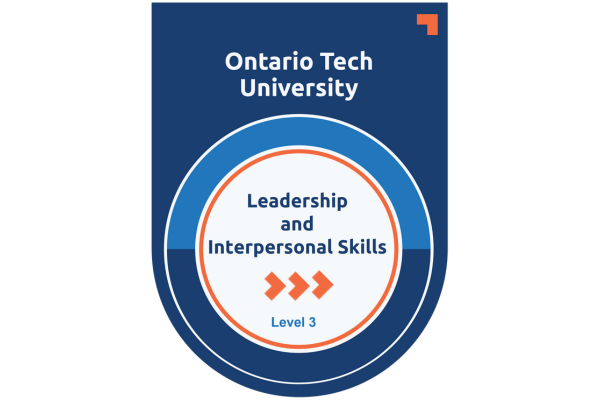
Essential soft skills required to improve risk management in leaders and risk managers
By: Diana Kawarsky (Continuous Learning Instructor)
Risk management is crucial for organizations to thrive in the fast-paced business landscape. While businesses often focus on technical expertise when hiring leaders and risk managers, soft skills like effective communication, collaboration, adaptability, and problem-solving are equally important.
In this blog post, we will explore some essential soft skills necessary for leaders and risk managers to help them improve their risk management practices.
What is risk management?
Risk management includes identifying potential risks that may arise and developing strategies to mitigate them. Its goal is not to eliminate risk entirely but to reduce its impact and likelihood of occurring. This reduction is achieved by identifying and analyzing risks, assessing their potential impact, developing strategies to prevent or minimize their impact, and monitoring the success of those strategies.
The importance of developing risk management skills
Effective risk managers and leaders must have a deep understanding of the risks associated with their organization’s operations and be able to develop strategies to mitigate those risks. Without communication, leadership, and problem-solving skills, even the most technically proficient risk managers may struggle to build consensus, inspire action, and achieve the desired outcomes.
That’s why all risk managers and leaders must invest in soft skills training and traditional risk management skill development. When these areas are approached together, the result is a highly competent and effective leader who is well-equipped to manage the risks of any organization.
Key soft skills required to improve risk management skills
In this field, managers and leaders can benefit from possessing the following important soft skills:
-
Adaptability and agility
Risk management professionals should be adaptable and agile in their thinking and actions. This means quickly adjusting plans or strategies when faced with unexpected challenges. Those who possess these skills are better equipped to anticipate potential risks and respond effectively, ultimately leading to more successful risk management outcomes.
-
Change management
Risk management entails managing change effectively. This requires the ability to analyze the potential impacts of change, communicate changes to stakeholders, and manage any resistance or challenges that may arise. Strong change management skills can help improve risk management processes.
-
Collaboration and teamwork
Risk managers typically work with a team to identify potential risks, develop mitigation strategies, and implement solutions. Effective collaboration and teamwork require strong communication and decision-making skills.
-
Communication skills
These skills include both written and verbal communication, as well as active listening. Clearly articulating risks, concerns, and potential solutions to stakeholders is essential in mitigating and managing risks. Strong communication skills can also help build trust and rapport with team members and leaders.
-
Conflict resolution and conflict management
Conflicts can have a significant impact on risk management if not appropriately handled. Professionals with strong conflict resolution and conflict management skills can address issues before they escalate into more significant problems that could affect project timelines or budgets.
-
Critical thinking
Critical thinking is the ability to objectively analyze information and make reasoned judgments based on evidence. This is one of the most crucial risk manager skills as it allows professionals to evaluate potential risks from multiple perspectives and identify any underlying causes or patterns that may contribute to them.
-
Decision-making skills
Strong decision-making skills are vital in identifying potential risks, evaluating the best course of action, and implementing effective solutions. These skills include weighing the pros and cons of different options, considering all relevant information, and making timely decisions.
-
Management and leadership skills
These skills include prioritizing tasks, delegating responsibilities, making decisions under pressure, and leading a team toward achieving goals. Leadership training in these skills is critical for managing risks proactively and efficiently within an organization.
-
Negotiation skills
Risk management often involves negotiating with stakeholders, clients, or other parties involved in a project. Having strong negotiation skills can help mitigate potential risks by finding mutually beneficial solutions and avoiding conflicts. These skills include effective communication and reaching compromises that satisfy all parties.
-
Problem-solving skills
Strong problem-solving skills can help professionals effectively navigate problems and find creative solutions. This involves analyzing complex situations, thinking critically, and coming up with innovative approaches to mitigate or manage risks.
-
Resilience
Resilience is the ability to adapt and bounce back from challenges or setbacks. In risk management, unexpected events or crises can occur that require quick thinking and adaptation. Training for risk managers should include developing resilience as a soft skill. It can help them better handle these situations and develop effective solutions.
-
Stress management
In the constantly changing business world, professionals must be able to handle high levels of stress and pressure to make sound decisions and effectively manage risks. This skill involves being able to identify and manage one’s stress levels, as well as helping others on the team cope with stress.
Exploring the benefits of Continuous Learning
Understanding how to mitigate and manage risks effectively is essential for executives, managers, supervisors, team leaders, and project leaders. That’s why Continuous Learning offers the Strategic Management course. This comprehensive course covers the fundamentals of strategic planning and the strategic management of a business. Participants will learn key concepts and techniques to navigate complex environments, make informed decisions, and lead their teams with confidence.
Kawarsky, Diana. “Essential Soft Skills Required To Improve Risk Management In Leaders And Risk Managers”, The Soft Skills Group, 19 Jan. 2024,









